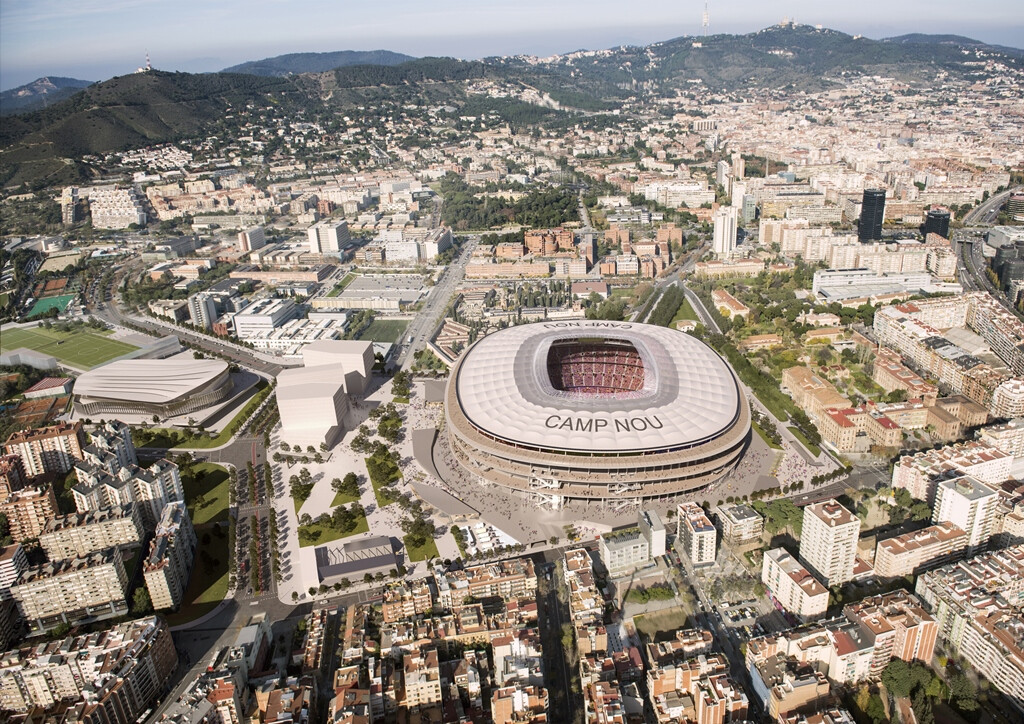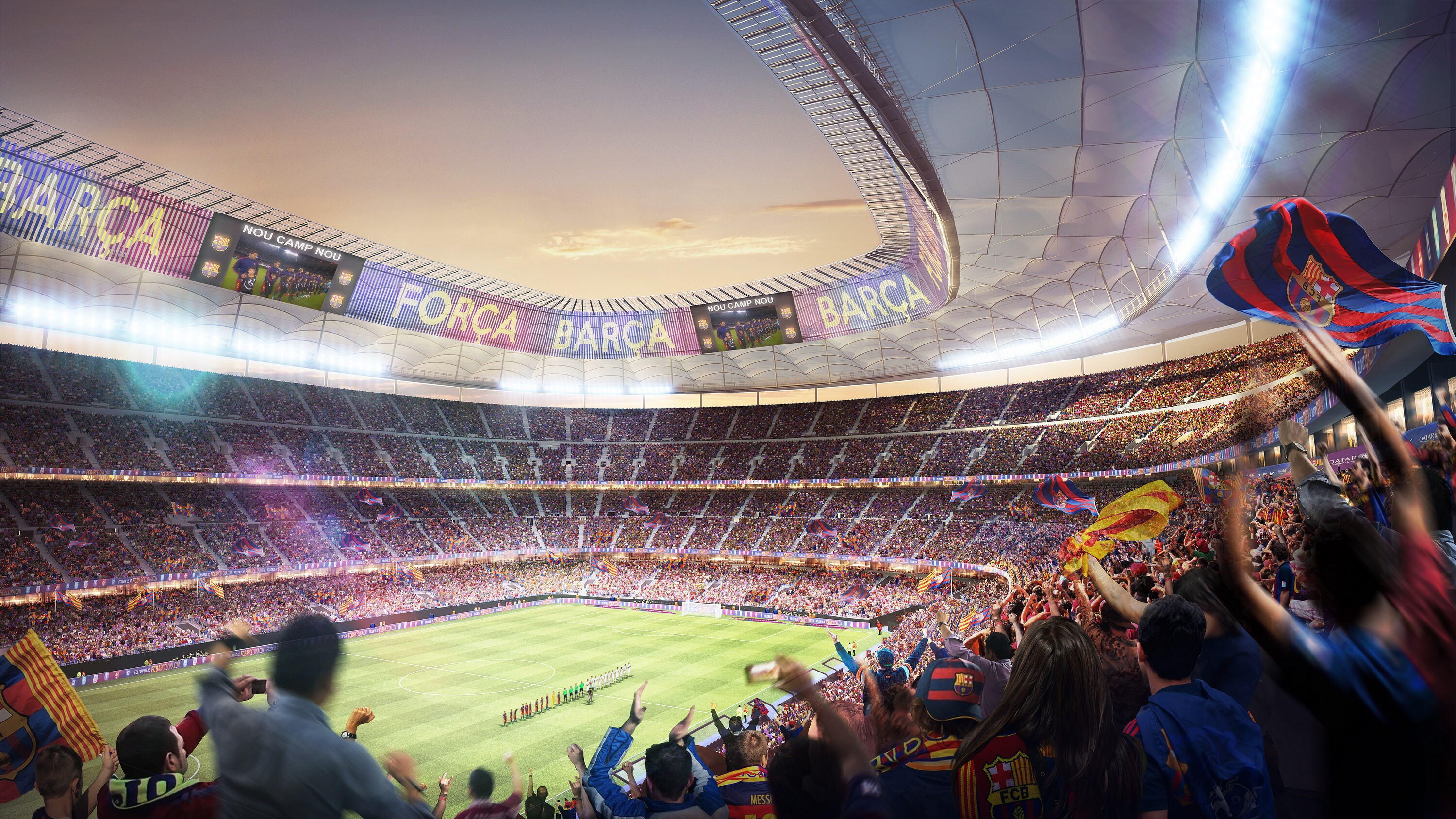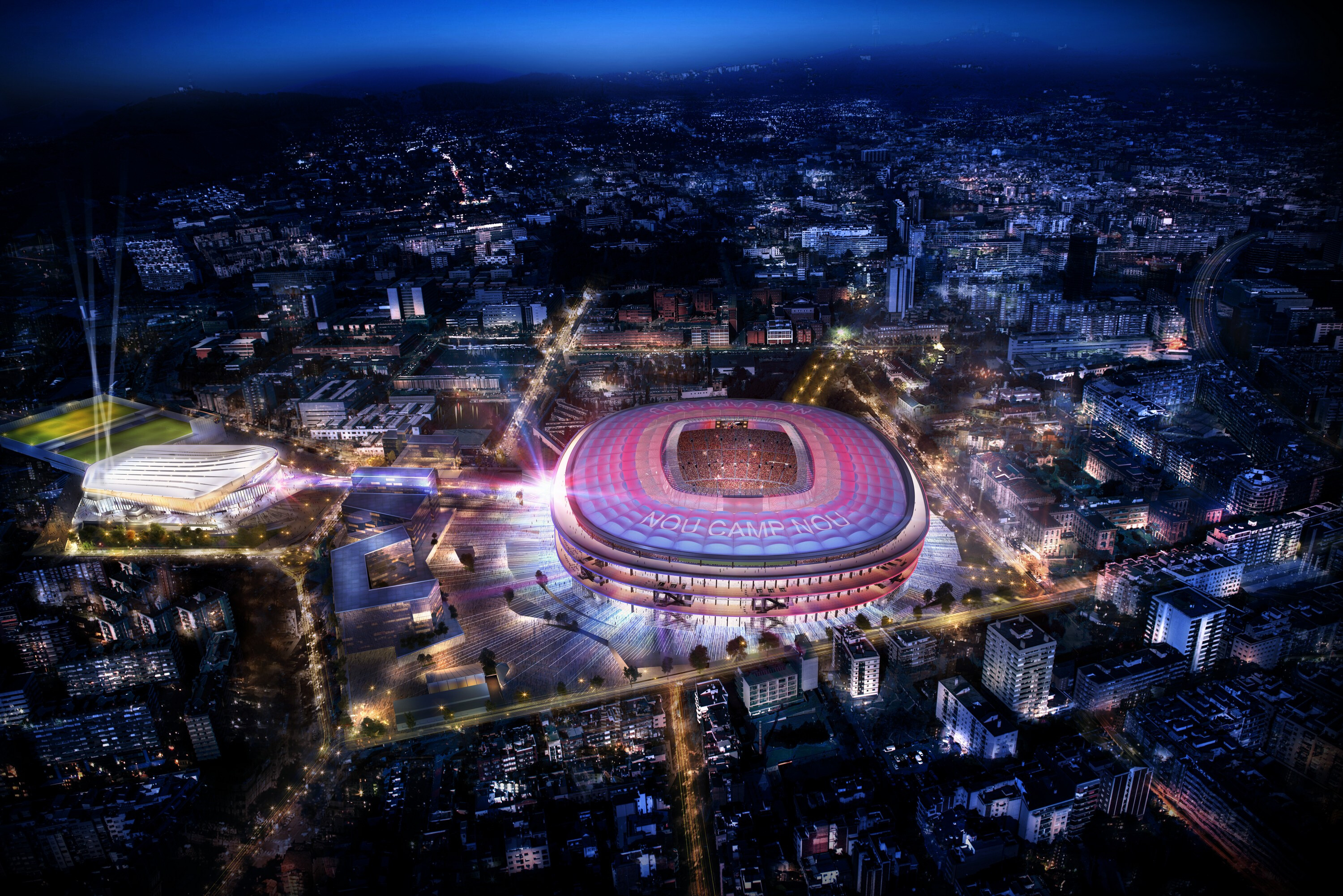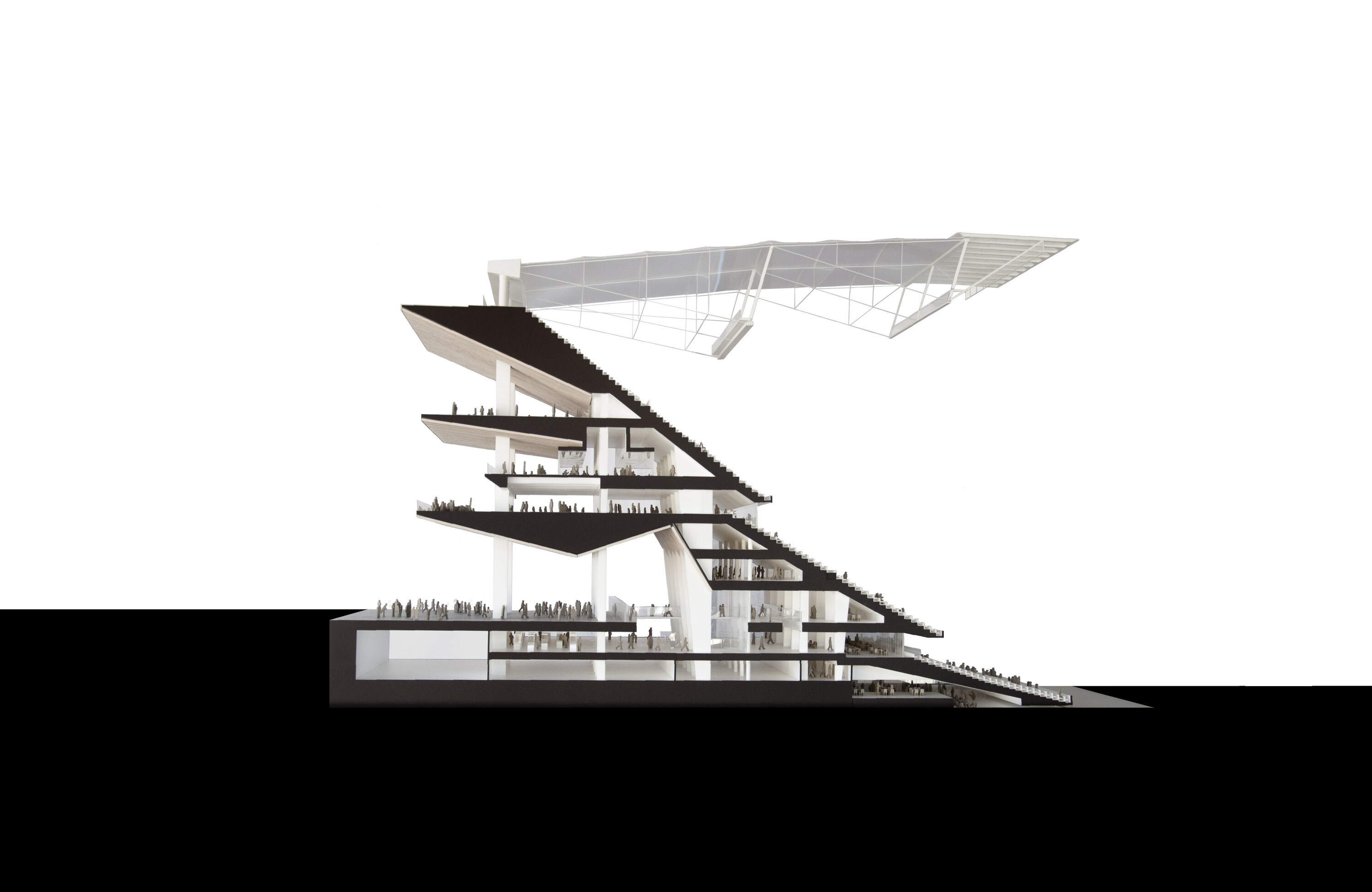COUNCIL GIVES GO AHEAD FOR INITIAL APPROVAL OF CITY PLANNING MODEL TO PROMOTE ESPAI BARÇA The Ecological, Urban Planning and Mobility Commission, formed by representatives of all political parties, approves the proposal presented by the municipal government for the Modification of the General Metropolitan Plan

On July 12th, the Espai Barça was given the green light by the Barcelona City Council’s Ecology, Urban Planning and Mobility Commission after a political debate between the political parties with municipal representation and the initial approval of Modification of the General Metropolitan Plan (MPGM) that has been presented by the city’s government. This is the first indispensable procedure for achieving definitive approval, in a few months’ time. Now a new three-month period shall commence for public viewing (not including the month of August), when the parties may present allegations, after which the document shall be sent for definitive approval by the Plenary Council, the final municipal procedure before being submitted for definitive approval by the Barcelona Urban Planning Sub-Commission, which pertains to the Catalan Government.
The Ecology, Urban Planning and Mobility Commission has initially approved the proposal of the MPGM with votes in favour from the Municipal Government –BComú and PSC–, Ciutadans and the non-affiliated governor, Gerard Ardanuy; with abstentions from GMDemòcrata, ERC and PP and one vote against from CUP.

In the commission’s debate, the assistant to the mayor for Ecology, Urban Planning and Mobility, Janet Sanz, appraised how the document proposed by the Municipal Government “satisfies the different elements that have been proposed for discussion by the different parties and also the interests of the city … We feel that it is a balanced proposal that covers all of the main demands by local residents and the requests from FC Barcelona and guarantees overall public interest.” In its proposal, the city government stresses that the Modification of the General Metropolitan Plan will mean that the facilities will no longer form an urban barrier, but shall instead generate a new space for public usage and foresees that FC Barcelona shall assume responsibility for the planning and construction work in the Arístides Maillol and Maternitat streets.
Large scale urban transformation The proposed MPGM is the planning instrument for carrying out a large-scale urban transformation in a natural, open and accessible manner, as is necessary to undertake the Espai Barça project, both in terms of the club’s sports facilities and their surroundings. The Espai Barça includes four lines of action: integral remodelling of the Camp Nou, the construction of a New Palau Blaugrana on the current site of the Miniestadi, a Campus Barça that will include buildings used for the club’s administrative and managerial services and the services required for the club and its different sports to operate, and new urban usages to enhance the surroundings. The proposal as initially approved by the Ecology, Urban Planning and Mobility Commission is the result of months of intense work with specialist Barcelona City Council urban planning, mobility and sustainability teams, and the public procedure whereby local residents from Les Corts have debated and agreed upon the characteristics that have been included in the MPGM.

This urban planning document has involved the Club observing the criteria and parameters of the proposal submitted to and approved in the referendum among its membership in April 2014, where 72.3% of votes were in favour, and which was agreed with Les Corts Council and residents in order for the restructuring programme to involve as many groups as possible and to be of the utmost benefit to the people and the city as a whole.
Camp Nou surroundings to gain in public spaces and become more open One of the most important improvements involved in the proposed transformation of the space is that the Camp Nou and the other FC Barcelona facilities will be opened up, so as to no longer form an urban barrier. The site will be integrated in the Maternitat and Sant Ramon neighbourhoods and shall be permeable, with new private spaces that will be open for public use without barriers, thus ensuring continuity with regard to the other public spaces, roads and green zones in and around the vicinity of the Camp Nou and the current Miniestadi.
The objective is for the whole private area, that will be open for public use, and free of any private buildings –33,796 m2–, which faces Arístides Maillol street, between Travessera de les Corts and Cardenal Reig street, and also along Maternitat, to be properly built up in such a manner that it creates a new zone that is open to the people of the city and where the urban activity shall imply much more than use purely for sporting events.
This proposal to open up the site will generate a set of new public spaces that will offer far more pleasant routes between Travessera de les Corts and Diagonal with direct access to the green areas in Diagonal and the different public transport networks that use that avenue.

Better road network and new route for Arístides Maillol The MPGM also includes improvements to the planning of the whole road network. The construction plans include changes to Arístides Maillol and an extension of the public space to better connect the facilities with their surroundings. Improvements will also be made to the section of Maternitat, whereby many of the current trees will be maintained and the area will be better connected to Joan XXIII and Diagonal. Changes will also be made to road and pedestrian accesses throughout the zone, with five meter or wider pavements around all around the sports buildings. Room will also be provided for bike lanes in Arístides Maillol, Joan XXIII, Maternitat and Gregorio Marañón.
Changes to mobility to reduce impact on match days As for mobility, the proposed document includes measures to reduce the impact on mobility in the neighbourhood of the huge numbers of people coming to games at the Camp Nou. All surface level parking spaces will be moved underground to gain in space for use by the general public and reduce the presence of motorbikes on the pavements. There will be same number of spaces as there are at present. There will be 3,200 spaces for cars and 1,000 for bikes, plus an additional 700 safe places for bicycles in the ground. There shall also be parking underground for 50 coaches, at first, a number that shall later be expanded to 70, and which shall form part of the FC Barcelona facilities, with access from Avinguida de Xile. Menéndez Pelayo will also be adapted to create space for 60 coaches on match days. These actions mean that Plaça Bederrida will be converted back into a park area.
Planned areas and financial costs As a result of the proposal, the city will gain some 13,900m2 of land, 18,600 m2 new green areas, 1,450m2 of land for construction of public facilities and access to a large, open public area without barriers of almost 40,000 m2. The proposed MPGM will not suppose any cost to the city. FC Barcelona shall invest almost 28 million additional euros in urban roads and works, which will be compensated by new built-up areas totalling 30,000 m2 for office, tertiary and hotel usage –the latter up to a maximum of 10,000 m2-, to be built at the crossroads of Arístides Maillol and Joan XXIII. The remaining basic costs for the generation of private spaces for public use, such as urbanization of the surface, the construction of underground parking and levelling, the coach park, for a total cost of 80 million euros, were already included in the overall budget of 600 million euros for the Espai Barça.
Statement by Jordi Moix, commissioner for Espai Barça: “We are highly satisfied because we have taken a major step forward in the path towards the necessary urban planning procedures in order to begin construction work on the Espai Barça, as is initial approval of the MPGM by the Ecological, Urban Planning and Mobility Commission which is formed by all the political parties with municipal representation. The city government’s proposal has received very positive support from most political forces on the City Council”.
“We have flown across one line, but the race goes on before we’ll reach the end. This initial approval is the culmination of the three years of work since the referendum. From here, we shall continue working with all parties, entities and bodies in the city in order to get the project definitively accepted”.
“This initial approval will enable us to work more intensely on the architectural projects for the Camp Nou and the new Palau Blaugrana, and we shall also be able to work with more specific schedules in the search for ‘title rights’, which are so necessary for funding the Espai Barça”.
























